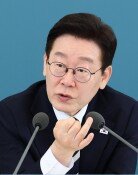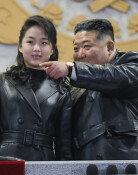The Katyn Forest Massacre
After secretly signing a non-aggression treaty with the Soviet Union in August 1939, Germany invaded Poland Sept. 1 that year with 3,000 tanks and 1.5 million troops. The invasion sparked the start of World War II. At the time, key figures of the Polish government and military evacuated to the east, only to get caught by Soviet forces. The Poles went out of the frying fan but into the fire. In March 1940, Soviet leader Joseph Stalin ordered his men to eliminate the Polish elite so that Poland could never be independent again. The Katyn Forest massacre resulted in the Soviet Union executing some 22,000 members of Polish elite.
For a long time, the Soviets blamed the massacre on Germany. Poland, which was then dominated by the Soviet Union, could say nothing about the tragedy. The incident is only a part of Poland`s tragedy-ridden history. From 1772 to 1918, Poland, a civilized country that produced astronomer Nicolaus Copernicus and composer Frederic Chopin, was split under ruling by Russia, Prussia and Austria. Poland is also known to be the biggest victim of Nazi rule. Often falling victim to international politics ruled by the law of the jungle despite its civilized culture, Poland is reminiscent of Korea in the early 20th century when Korea lost its sovereignty to Japan.
A plane carrying Polish President Lech Kaczynski and 96 high-ranking Polish officials crashed while attempting an emergency landing. Everyone onboard was killed. Kaczynski was on his way to Russia to commemorate the victims of the Katyn massacre in a separate ceremony after Moscow had invited Polish Prime Minister Donald Tusk to an official memorial ceremony. The plane crashed in Smolensk, a city near the forest. The deaths of the Polish president, his wife and high-ranking bureaucrats and military elite are a reminder of the 1940 tragedy.
A Polish proverb says what is lost in a fire must be found in the ashes. This shows the Poles` perseverance and potential that kept them from getting frustrated in the face of pain and hardship. Just like Korea, Poland suffered from frequent invasions and internal conflict but got back on its feet. After the labor movement led by Lech Walesa toppled communist rule, Poland achieved steady economic growth to join the Organization for Economic Cooperation and Development in 1996. People around the world are sending their deepest condolences to the Poles.
Editorial Writer Chung Sung-hee (shchung@donga.com)







